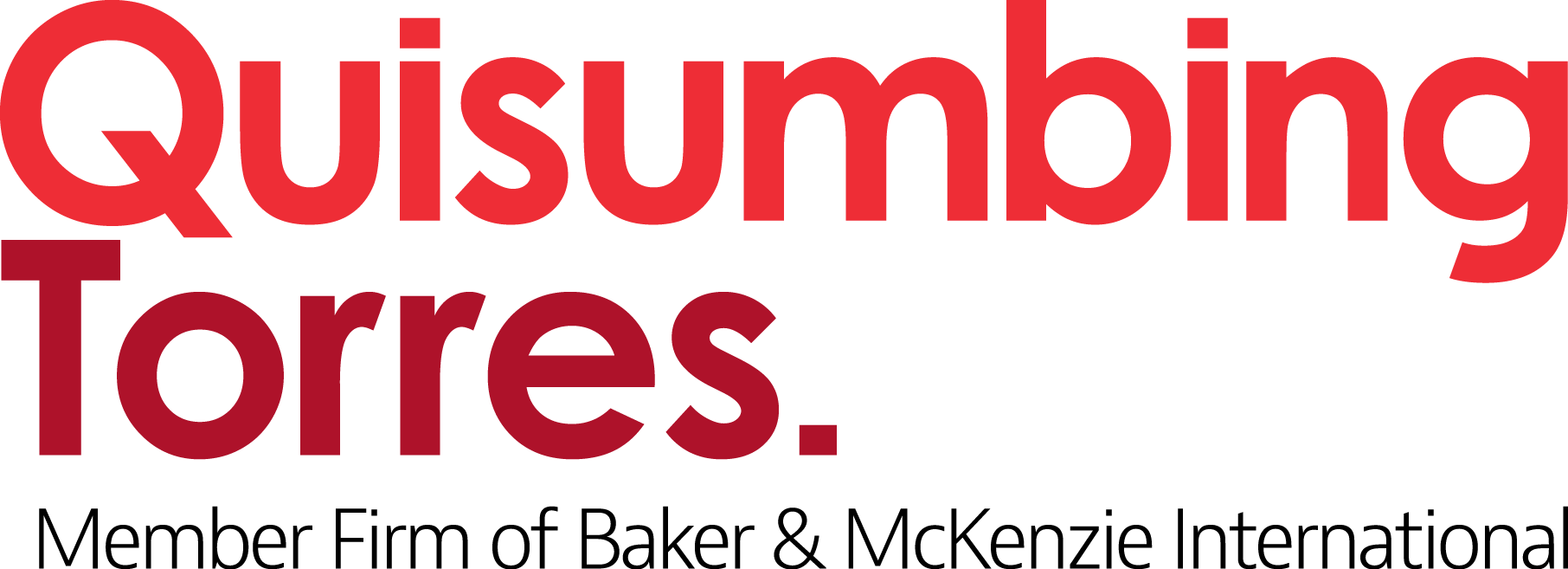In brief
On 4 June 2024, the Department of Energy (DOE) issued the Revised Omnibus Guidelines Governing the Award and Administration of Renewable Energy Contracts and the Registration of Renewable Energy Developers (Department Circular No. DC2024-06-0018) (“Revised Omnibus Guidelines“). The Revised Omnibus Guidelines amend the previous set of guidelines (i.e., Department Circular No. DC2019-10-0013) (“Previous Omnibus Guidelines“) to integrate the latest policies and issuances from the DOE for an effective and efficient award and administration of Renewable Energy (RE) Contracts and registration of RE Developers in view of the increased interest of investors in this sector.
Comments
RE Developers and investors are well advised to consider the Revised Omnibus Guidelines, as the guidelines reflect the Philippine government’s continued push towards the ease of doing business in the RE sector through its liberalized and optimized policies. We can advise and assist with new investments into the Philippines in the RE sector. We can also advise and assist existing RE Developers and investors to take advantage of the simplified processes and requirements, as well as new opportunities.
We will release additional client alerts that provide a more comprehensive view of specific portions of the Revised Omnibus Guidelines.
In depth
- The Revised Omnibus Guidelines prescribe the guidelines and procedures on the following:
- The pre-application, application and award of RE Contracts
- The conversion of existing service contracts to RE Contracts for the exploration, development or utilization of RE resources with the DOE, subject to Section 39, Rule 13 of the Implementing Rules and Regulations of the Renewable Energy Act1
- The issuance by the DOE of Certificates of Registration for RE Developers for projects with or without RE Contracts
- The administration of RE Contracts
- Key developments in the Revised Omnibus Guidelines include the following:
- Removal of nationality requirement
- The Previous Omnibus Guidelines provided that the RE applicant must be a Filipino, or if a corporation, must be a Filipino corporation duly registered with the Securities and Exchange Commission (SEC), with at least 60% of its capitalization duly owned and controlled by Filipinos. Only applications for biomass development and/or that use waste-to-energy technology were exempted from this requirement under the Previous Omnibus Guidelines.
- The Revised Omnibus Guidelines incorporate DOE Circular No. DC2022-11-0034, which implemented the decision of the Department of Justice promulgated on 29 September 2022.2 Under the Revised Omnibus Guidelines, any person, whether Filipino or foreigner, may apply for RE Contracts. The applicant may be a Filipino and/or a foreign citizen, or a Filipino- and/or a foreign-owned corporation or association that is authorized by its articles or deed of incorporation to engage in the development and utilization of such RE.
- However, an applicant who applies for such contracts that involve activities reserved to Filipino citizens or corporations or associations at least 60% of whose capital is owned by Filipinos (e.g., land ownership, lease of public land, appropriation of water directly from the source) will need to comply with the nationality requirements under applicable laws.
- The Revised Omnibus Guidelines also retain the nationality requirements for Geothermal Service Contracts (GSC). It provides that the applicant must be a Filipino citizen, or if a corporation, must be a Filipino corporation with at least 60% of its capitalization duly owned and controlled by Filipinos, duly registered with the SEC, and organized or authorized for the purpose of engaging in exploration, development and utilization of geothermal resources. If, however, the applicant is a joint venture or a consortium, the partners of the joint venture or members of the consortium shall organize themselves as a corporation under the Revised Corporation Code, or secure the appropriate license from the SEC if the joint venture or consortium was incorporated outside of the Philippines.
- Introduction of Certificate of Authority (COA)
- To improve the efficiency of the preliminary stages of project development, RE Developers are now allowed to commence permit processing and conduct survey and other feasibility activities before the official 25-year contract term under the RE Contract begins. The Revised Omnibus Guidelines provide that the DOE will issue a COA to allow developers to conduct reconnaissance and other pre-feasibility activities and secure the necessary permits/certifications or tenurial instruments listed in the COA. The validity period of the COA varies by project type: three years for biomass, geothermal, hydropower, ocean, and onshore and offshore wind projects; two years for floating solar; and one year for land-based solar projects. The period of the COA is not extendible.
- Duty-free importation incentives
- The DOE has streamlined the process for duty-free importation incentives under the Revised Omnibus Guidelines. RE Developers of certain projects may now receive a Certificate of Registration (COR) upon signing of the contract or proof of financial closing, which will allow the availment of duty-free importation incentives in the project Development Stage.
- Under the Previous Omnibus Guidelines, the process was less streamlined, potentially leading to delays in availing of incentives during the project development stages.
- Enhanced investment opportunities
- The Revised Omnibus Guidelines introduce opportunities for new investments within the contract areas, enabling developers to apply for additional RE Contracts and potentially enjoy extended contract terms and incentives for capacity-increasing investments.
- The Previous Omnibus Guidelines did not explicitly provide these opportunities, which might have limited the potential for expanded investment and development within existing contract areas.
- Enhanced Energy Virtual One-Stop Shop (EVOSS) System
- The Revised Omnibus Guidelines plan for a five-month enhancement period for the EVOSS System to improve efficiency and provide real-time updates on available service or operating contract applications. During this period, processing new Letters of Intent and RE applications will be paused while existing applications will continue to be processed.
- The use of the enhanced online EVOSS System in the application process aims to lower transaction costs, increase accountability and transparency, and improve bureaucratic efficiency through standardized forms and procedures. Applications, proof of payment, and documentation for energy projects can now be submitted online. The application status can also be tracked online through the EVOSS portal.
- A reduction on restrictions on assignments of RE Contracts
- In the Revised Omnibus Guidelines, an RE Contract may be assigned to an Affiliate of the RE Developer at any time and for any number of times during its term.
- As for assignments to non-Affiliates, an RE Service contract may be assigned only once during the Pre-Development Stage after two years from its effectivity. However, this two-year limitation shall not apply if, prior to the date of the assignment, the applicable minimum set of permits and activities were procured/conducted by the RE Developer. In this case, it may be assigned any number of times during the Development Stage. On the other hand, an RE Operating Contract may be assigned only once during the Development Stage after two years from its effectivity, but it may be assigned any number of times during the Commercial Stage.
- In the Previous Omnibus Guidelines, assignment of the RE Contract to a non-Affiliate was only allowed once during the entire period of the Pre-Development Stage of the RE Service Contract or the entire term of the RE Operating Contract.
- Removal of nationality requirement
1 Benefits or incentives extended to RE Developers as well as to manufacturers, fabricators and suppliers of locally produced RE equipment under existing laws not amended or withdrawn under the Renewable Energy Act (“Act“) shall remain in full force and effect. No provision of the Act shall be taken as to diminish any right vested by virtue of existing laws, contracts or agreements. However, in order to qualify for the availment of the incentives provided under Chapter VII of the Act and these Implementing Rules and Regulations, the RE Developer and manufacturers, fabricators and suppliers of locally produced RE equipment shall be required to secure a certificate of registration or accreditation with the DOE. The fiscal incentives granted under Section 15 of the Act shall apply to all RE capacities upon the effectivity of the Act. Pending the issuance of other necessary guidelines, the grant of provisional certificates of registration by the DOE shall be valid and effective.
2 On 29 September 2022, the Department of Justice (DOJ) issued DOJ Opinion No. 21, Series of 2022, which interpreted the term “natural resources” in Section 2, Article XII of the Constitution as to exclude RE sources from the application of the foreign ownership limitations under the same provision.
* * * * *

Please contact QTInfoDesk@quisumbingtorres.com for inquiries.






